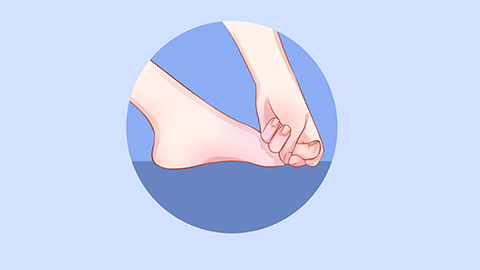What causes leg cramps during pregnancy?
Generally, leg cramps during pregnancy may be caused by increased calcium demands, uterine compression, hypocalcemia, lower extremity varicose veins, lumbar disc herniation, and other factors. It is recommended to seek timely medical consultation to identify the underlying cause and receive appropriate treatment under a physician's guidance. Detailed explanations are as follows:

1. Increased calcium demand: During pregnancy, the developing fetus requires substantial calcium. If the mother's calcium supply is insufficient, neuromuscular excitability may increase, making leg cramps more likely, especially at night. Increase intake of calcium-rich foods such as milk and soy products, ensure sufficient daily water intake, get moderate sun exposure to enhance calcium absorption, and avoid excessive fatigue.
2. Uterine compression: As pregnancy progresses, the enlarging uterus may compress blood vessels and nerves in the lower limbs, affecting circulation and nerve conduction, causing leg cramps accompanied by leg soreness and swelling. Avoid prolonged standing or sitting, elevate the legs appropriately when resting to promote venous return, and wear loose, comfortable clothing to reduce pressure.
3. Hypocalcemia: Insufficient calcium intake or poor absorption during pregnancy may lead to decreased blood calcium ion levels, causing calf muscle spasms and frequent cramps that may disrupt sleep. Patients may take calcium supplements such as calcium carbonate D3 granules, calcium gluconate oral solution, or calcium lactate chewable tablets as directed by a physician. Strictly follow medical instructions to avoid overdose.
4. Lower extremity varicose veins: Increased blood volume during pregnancy raises pressure in the leg veins, impairing venous return and causing blood stasis, which may lead to leg cramps accompanied by visible bulging veins. Avoid prolonged standing, engage in mild physical activity such as walking to promote circulation, and wear medical compression stockings under a physician's guidance to relieve venous pressure.
5. Lumbar disc herniation: Increased load on the lower back during pregnancy may exacerbate lumbar disc herniation, compressing nerve roots and causing leg cramps along with back pain and lower limb numbness. Patients may receive gentle lumbar massage or heat therapy under medical guidance to relieve symptoms, avoid strenuous activity and heavy lifting, and in severe cases, undergo lumbar discectomy after pregnancy to relieve nerve compression.
When leg cramps occur during pregnancy, slowly stretching the calf muscles may help alleviate discomfort. Maintain a balanced diet, ensure adequate nutrition, attend regular prenatal checkups, and promptly identify and manage any abnormalities to ensure a safe pregnancy.









